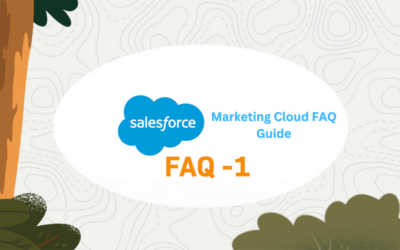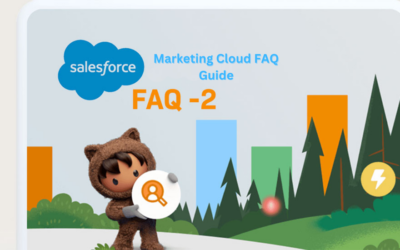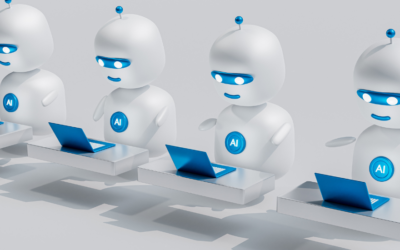In the dynamic realm of Customer Relationship Management (CRM), where businesses navigate the intricacies of customer interactions and data management, the integration of advanced technologies has become a catalyst for transformation. Two prominent players, HubSpot AI, and Salesforce Einstein, have emerged as frontrunners in leveraging artificial intelligence to redefine the way businesses connect with their customers. In this comprehensive exploration, we will delve into the unique features, strengths, and considerations of HubSpot AI and Salesforce Einstein, providing a detailed analysis to aid businesses in making informed decisions about their CRM strategies. As businesses evolve, so do the expectations and demands of customers, and these CRM solutions stand at the intersection of innovation and practicality, offering sophisticated tools to enhance sales, marketing, and customer service.
In parallel, the landscape of CRM is witnessing the rise of alternative solutions, and one such contender is the integration of Generative Pre-trained Transformers (GPT) into CRM systems. As we dissect the offerings of HubSpot AI and Salesforce Einstein, we will also explore the potential paradigm shift introduced by GPT-powered systems, examining how they could redefine natural language processing and customization within CRM. This comparison aims not only to assist businesses in choosing between these two CRM giants but also to shed light on the evolving landscape of AI in CRM, where the amalgamation of machine learning and language understanding promises a new era of personalized, intelligent customer interactions. If you need assistance with Salesforce CRM setup and optimization, companies like CRM Force can provide valuable expertise and support.
1- HubSpot AI: A Closer Look
HubSpot, a trailblazer in the realm of Customer Relationship Management (CRM), has significantly elevated its capabilities with the integration of artificial intelligence (AI). HubSpot AI stands as a testament to the brand’s commitment to providing businesses with intuitive, data-driven tools to enhance customer interactions and streamline marketing and sales processes.
Predictive Lead Scoring:
One of the standout features of HubSpot AI is its Predictive Lead Scoring system. This innovative tool employs machine learning algorithms to analyze historical data, customer behavior, and various engagement metrics. The primary goal is to provide sales teams with valuable insights into the likelihood of a lead converting into a customer. By assigning scores based on these analyses, the system assists sales professionals in prioritizing their efforts, focusing on leads with higher conversion potential. This not only optimizes time and resources but also contributes to more effective sales strategies.
Content Recommendations:
In the dynamic landscape of digital marketing, delivering personalized content is paramount. HubSpot AI addresses this need through its Content Recommendations feature. Leveraging machine learning, the system analyzes user behavior, past interactions, and preferences to suggest tailored content to website visitors or email recipients. This functionality not only enhances user engagement but also increases the likelihood of conversions by providing relevant and valuable information. Marketers can create more targeted campaigns, delivering the right message to the right audience at the right time.
Automated Email Campaigns:
Automation is a cornerstone of modern marketing, and HubSpot AI excels in this regard. The platform’s Automated Email Campaigns feature allows marketers to set up and execute email campaigns with ease. From personalized drip campaigns to targeted newsletters, the system streamlines the entire process. HubSpot AI considers user behavior, engagement patterns, and demographics to automate the delivery of emails, ensuring that each communication is timely and relevant. This not only saves time for marketing teams but also ensures that leads and customers receive communications tailored to their specific needs and preferences.
Chatbots and Conversational Marketing:
The era of conversational marketing is here, and HubSpot AI embraces it through its Chatbots and Conversational Marketing tools. By integrating AI-powered chatbots on websites or within messaging apps, businesses can engage with visitors in real time. These chatbots are designed to understand user queries, provide relevant information, and even guide users through specific actions. From answering frequently asked questions to facilitating lead generation, HubSpot’s Chatbots enhance customer engagement and provide a seamless, 24/7 interaction channel. This not only improves user experience but also empowers businesses to capture leads and address customer inquiries promptly.
In essence, HubSpot AI goes beyond traditional CRM capabilities by harnessing the power of AI to revolutionize lead management, content delivery, email campaigns, and customer engagement. Its intuitive interface and user-friendly design make it accessible to businesses of all sizes, while its robust features contribute to more efficient and effective marketing and sales strategies. As businesses navigate the ever-evolving landscape of customer interactions, HubSpot AI stands as a reliable ally, leveraging AI to drive meaningful connections and foster long-term relationships with leads and customers alike.
2- Salesforce Einstein: The AI Powerhouse
Salesforce, a global leader in Customer Relationship Management (CRM), has solidified its position at the forefront of innovation with the introduction of Salesforce Einstein. As an AI powerhouse, Salesforce Einstein is designed to elevate the capabilities of the Salesforce platform, providing users with intelligent insights, automation, and predictive analytics to transform the way businesses engage with their customers.
Predictive Analytics:
At the core of Salesforce Einstein’s offerings is its robust predictive analytics capabilities. Leveraging advanced machine learning algorithms, Einstein analyzes vast datasets to identify patterns, trends, and correlations. This predictive prowess empowers businesses to anticipate future customer behaviors, market trends, and sales opportunities. By harnessing the power of predictive analytics, organizations can make informed decisions, optimize their strategies, and stay ahead in the competitive landscape.
Automated Lead Scoring:
Salesforce Einstein takes the guesswork out of lead management with its automated lead-scoring system. By evaluating historical data, user interactions, and engagement metrics, Einstein assigns scores to leads based on their likelihood to convert. This functionality enables sales teams to prioritize leads effectively, focusing their efforts on prospects with the highest potential for conversion. The result is a more streamlined and efficient sales process that maximizes the impact of sales efforts.
Personalized Customer Journeys:
In the era of customer-centric business models, personalization is key, and Salesforce Einstein excels in delivering personalized customer journeys. The platform leverages AI to analyze customer data, preferences, and behaviors, enabling businesses to create tailored experiences for each individual. Whether through personalized marketing campaigns, targeted communications, or customized product recommendations, Salesforce Einstein ensures that every customer interaction is meaningful, fostering stronger connections and brand loyalty.
AI-Driven Insights:
Salesforce Einstein goes beyond basic analytics by providing users with AI-driven insights. The platform continuously learns from user interactions and data inputs, uncovering valuable insights that might go unnoticed through traditional analytics. These insights range from identifying opportunities for cross-selling and upselling to highlighting potential challenges in the sales pipeline. By arming users with actionable intelligence, Salesforce Einstein becomes a strategic ally in driving business growth and success.
In terms of integration, Salesforce Einstein seamlessly integrates with the broader Salesforce ecosystem, including Sales Cloud, Service Cloud, Marketing Cloud, and more. This deep integration ensures a cohesive and unified experience for users across various departments, allowing for a comprehensive view of customer interactions and business operations.
Customization and Flexibility:
Recognizing that each business has unique needs, Salesforce Einstein offers a high degree of customization and flexibility. Users can tailor the AI models to align with specific business processes, industry requirements, and objectives. This adaptability ensures that Salesforce Einstein is not a one-size-fits-all solution but a powerful tool that can be finely tuned to meet the diverse needs of different organizations.
As businesses navigate the complexities of modern customer engagement, Salesforce Einstein stands out as a comprehensive AI solution that empowers organizations to harness the full potential of their CRM data. With its advanced analytics, automation, and personalized insights, Salesforce Einstein not only enhances the efficiency of business operations but also positions businesses to deliver exceptional customer experiences in an increasingly competitive market. As the CRM landscape continues to evolve, Salesforce Einstein remains a beacon of innovation, driving the future of intelligent customer relationship management.
3- HubSpot AI vs Salesforce Einstein: A Head-to-Head Comparison
In the dynamic landscape of Customer Relationship Management (CRM) software, the competition between industry leaders HubSpot AI and Salesforce Einstein is fierce. Both platforms leverage artificial intelligence (AI) to enhance customer interactions, streamline business processes, and provide users with valuable insights. Let’s delve into a comprehensive head-to-head comparison to understand the strengths, weaknesses, and differentiating factors of HubSpot AI and Salesforce Einstein.
A- User-Friendliness:
HubSpot AI: HubSpot is renowned for its user-friendly interface and intuitive design. The platform is known for its accessibility, making it easy for users of all skill levels to navigate through its features and functionalities. This user-centric approach contributes to quicker onboarding and efficient daily use.
Salesforce Einstein: Salesforce, with its extensive ecosystem, can be perceived as having a steeper learning curve. The platform’s depth of features and configurations might require more time for users to become fully proficient. However, Salesforce compensates for this with extensive training resources and a robust support community.
B- Integration Capabilities:
HubSpot AI: HubSpot AI seamlessly integrates with the broader HubSpot suite, providing users with a unified experience across marketing, sales, and customer service. This integration allows for a comprehensive view of customer interactions and data within a single platform.
Salesforce Einstein: Salesforce Einstein, being part of the larger Salesforce ecosystem, offers deep integration capabilities with various Salesforce clouds, including Sales Cloud, Service Cloud, and Marketing Cloud. This interconnectedness ensures a synchronized flow of information across different departments.
C- Customization Options:
HubSpot AI: HubSpot AI provides a range of customizable features, allowing businesses to tailor the platform to their specific needs. This flexibility is particularly advantageous for businesses with unique workflows or industry-specific requirements.
Salesforce Einstein: Salesforce Einstein is highly customizable, offering extensive configuration options to align with diverse business processes. The platform’s adaptability is a key strength, enabling organizations to mold the system according to their specific CRM needs.
D- Pricing Structure:
HubSpot AI: HubSpot is generally considered more budget-friendly for small to mid-sized businesses. The platform often employs a transparent pricing model, which includes various plans catering to different business sizes and needs.
Salesforce Einstein: Salesforce is tailored for larger enterprises, and its pricing reflects the extensive features and scalability it offers. While it may require a more significant investment, Salesforce’s pricing is often justified by the robust capabilities and resources available.
E- Performance and Scalability:
HubSpot AI: HubSpot AI is well-suited for growing businesses, offering scalable features that can adapt to evolving needs. The platform’s performance remains reliable as businesses expand and encounter increased data volumes.
Salesforce Einstein: Salesforce Einstein is designed to meet the complex requirements of large enterprises. Its scalability allows it to handle vast amounts of data and support the intricate workflows of expansive organizations.
4- The Benefits of GPT in CRM
As the field of Customer Relationship Management (CRM) continues to evolve, the integration of advanced technologies has become a key driver of innovation. One such technology making waves in the CRM landscape is Generative Pre-trained Transformers (GPT). Developed by OpenAI, GPT represents a significant leap forward in natural language processing and understanding. Here are the benefits of incorporating GPT into CRM systems:
Natural Language Processing (NLP):
GPT, at its core, is a powerful NLP model. This means that it excels in understanding and generating human-like text. In the context of CRM, this capability opens up new possibilities for enhancing communication between businesses and their customers. GPT can interpret and respond to customer inquiries, feedback, and even complex requests in a manner that closely resembles human interaction.
Conversational AI:
One of the standout advantages of GPT in CRM is its ability to drive advanced conversational interfaces. By leveraging GPT-powered chatbots, businesses can offer customers a more natural and human-like interaction experience. These chatbots can understand context, engage in dynamic conversations, and provide personalized responses, leading to improved customer satisfaction and a more seamless user experience.
Customization and Flexibility:
GPT models are highly versatile and can be fine-tuned for specific applications. In CRM, this translates to a high degree of customization and flexibility. Businesses can train GPT models to understand industry-specific terminology, respond to unique customer queries, and adapt to the distinct communication styles of different user segments. This level of customization ensures that the CRM system aligns closely with the specific needs of the business.
Enhanced Customer Engagement:
GPT’s natural language understanding capabilities contribute to enhanced customer engagement. By providing responses that feel more personalized and contextually relevant, GPT-powered CRM systems can foster deeper connections with customers. Whether it’s through email communications, chat interactions, or automated responses, GPT ensures that customers feel heard and understood, ultimately leading to more meaningful relationships.
Improved Data Analysis:
GPT’s ability to analyze and generate text extends to processing and understanding unstructured data. In the context of CRM, this means that GPT can assist in extracting insights from a variety of data sources, including customer reviews, social media interactions, and open-ended survey responses. The result is a more comprehensive understanding of customer sentiments, preferences, and trends, empowering businesses to make data-driven decisions.
Advanced Automation:
Automation is a key focus in CRM systems, and GPT takes this to the next level. GPT-powered automation can handle complex tasks that require natural language understanding, such as categorizing customer queries, drafting personalized responses, or even generating content for marketing campaigns. This not only saves time and resources but also ensures a higher level of accuracy and relevance in automated processes.
The integration of GPT into CRM systems brings a multitude of benefits, ranging from improved communication and engagement to advanced automation and data analysis. As businesses seek to stay ahead in the competitive landscape, harnessing the power of GPT in CRM represents a strategic move towards more intelligent and customer-centric operations. The technology’s ability to understand, generate, and adapt language opens up exciting possibilities for creating a more humanized and effective CRM experience.
Conclusion
In the ever-evolving landscape of CRM solutions, the comparison between HubSpot AI and Salesforce Einstein has illuminated the distinctive strengths and functionalities each platform brings to the table. Businesses seeking a CRM solution must carefully consider factors such as user-friendliness, integration capabilities, customization options, pricing structures, and scalability to align the chosen platform with their unique needs. As the debate between these CRM powerhouses continues, it’s crucial to recognize that the right choice ultimately hinges on the specific requirements and goals of the business. Looking toward the future, the emergence of an “Einstein Alternative” takes center stage in the conversation around the next frontier of CRM innovation. As GPT-powered systems, with their natural language processing capabilities and advanced customization options, gain prominence, businesses are presented with an intriguing alternative to traditional CRM solutions. The ability of GPT to comprehend and generate human-like text opens up new possibilities for personalized interactions and data analysis, hinting at a transformative shift in the way businesses approach customer relationship management. As businesses weigh their options, it becomes evident that the integration of GPT into CRM systems holds the promise of unlocking a new dimension of intelligent and tailored customer engagement. The journey towards finding the perfect CRM solution continues, with the “Einstein Alternative” paving the way for a more nuanced, adaptive, and humanized approach to customer relationship management.
In this ever-evolving landscape, businesses are faced with a pivotal choice — whether to adhere to the established prowess of HubSpot AI and Salesforce Einstein or to explore the uncharted territories of GPT-powered CRM systems. The “Einstein Alternative” signifies not just a choice between platforms but a broader decision about the future direction of customer relationship management. As the dynamics of customer interactions continue to evolve, the integration of GPT into CRM systems appears poised to usher in a new era of intelligent, context-aware, and humanized customer engagement. In this concluding chapter, businesses are encouraged to embark on a journey of strategic reflection, weighing the immediate advantages against the transformative potential that lies in embracing the “Einstein Alternative.” The path forward is marked by a commitment to harnessing technology that not only meets current needs but anticipates and adapts to the evolving landscape of customer relationship management. To learn more about how CRM Force can assist you in recruiting top CRM talent and optimizing your CRM strategies for successful drip campaigns, contact us today. Together, let’s maximize your customer engagement Contact Us today.





